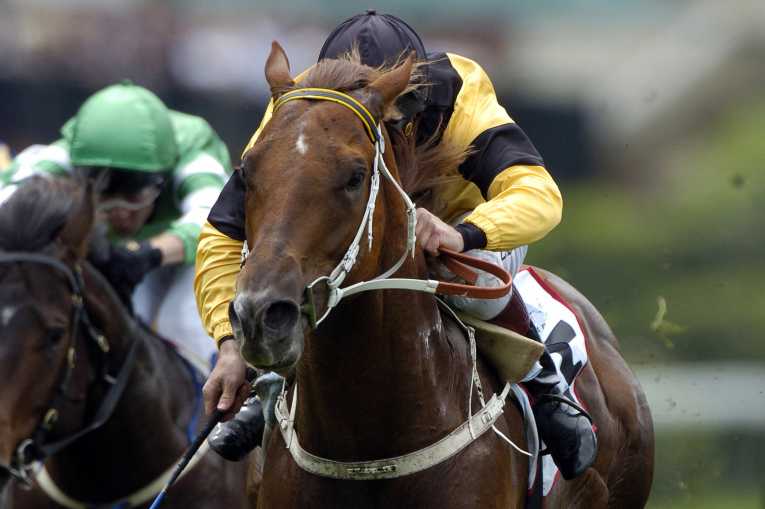The world famous Grand National has been equated to bullfighting and been told it has no place in a civilised society as news of the deaths of two horses in the race is met with shock and outrage.
In soaring temperatures, and in what turned out to be the second fastest race in Grand National history, two horses Ornais and Dooney's Gate died during the race. The course had to be altered, the pack missing the notorious Becher's Brook to avoid the horses' bodies. Winner Ballabriggs had to be taken to the stables instead of the winner's enclosure and was pictured being treated with oxygen after the race.
The Grand National is the world's most famous steeplechase. Held at Liverpool's Aintree Racecourse each year the meet attracts hundreds of thousands of racegoers across its three days.
Animal welfare campaigners have been quick to criticise the race with one group, Animal Aid, equating it to bullfighting.
Director Andrew Tyler claims 20 horses have died on the course since 2000 saying, ''When horses are killed at the Grand National meeting, their deaths are not accidents but entirely predictable. The public has been conned into believing that the Grand National is a great sporting spectacle when, in reality, it is straightforward animal abuse that is on a par with Spanish bullfighting. This race should have no future in a civilised country.''
He also criticised the BBC who he claims ''all but concealed news of the deaths'' with one of the commentary team describing them as ''obstacles''.
A spokesperson for the BBC said the commentary team had tried to deal with the deaths ''as sensitively as possible'' adding presenter Clare Balding touched on the deaths in her closing links on the live programme. She also alerted followers on her Twitter accounts to the deaths.
The RSPCA has announced they will look into the race. On Wednesday, the animal protection organisation called for jockeys to reduce their use of the whip and not to push horses tiring in the strenuous race. Jockey Jason Maguire, who rode the winner Ballabriggs, has been banned for five days for overuse of the whip.
RSPCA equine consultant David Muir had written in that press release on Wednesday 6 April, "Jockeys need to consider their responsibilities in relation to the safety and welfare of the horse, with all whip use being strictly within the rules. They should not force tired horses to continue to race just for the sake of finishing the course as this greatly increases the risk of serious injury to both horse and rider.''
For organisers at Aintree Racecourse, the furore will prompt another period of review of the course and safety procedures. Fences have been reduced in size and over the last three years there has been a wholesale examination of safety procedures and implementations,including smoothing the ground after notorious jumps like The Chair to reduce the possibility of falls.
Julian Thick is the Managing Director at Aintree, ''We are desperately sad at the accidents during the running of the Grand National and our thoughts go out to the connections of Ornais and Dooneys Gate.''
''When a horse gets hurt, everyone is deeply upset.''
''Safety is the first priority for the organisers of the Grand National meeting and we will redouble our efforts to make sure that everyone involved in the event - the horses, the jockeys, the spectators - is able to participate in safety and comfort.''
Image: Horse Race example.










